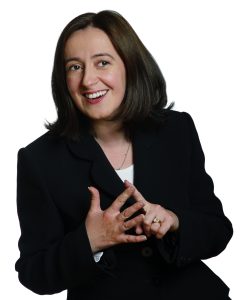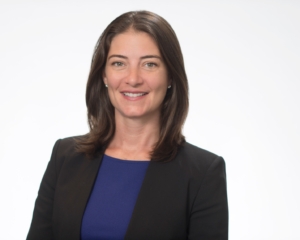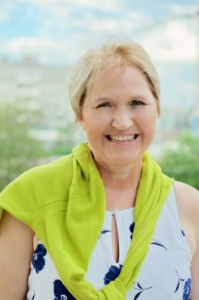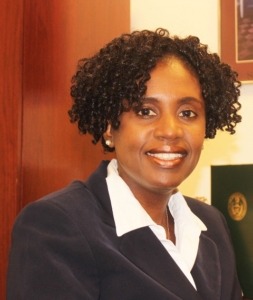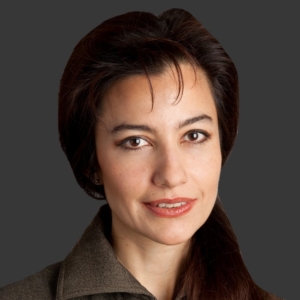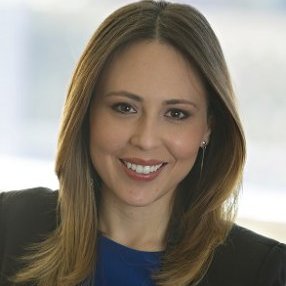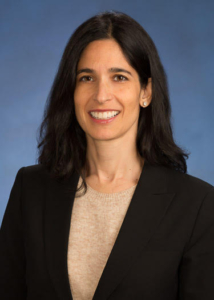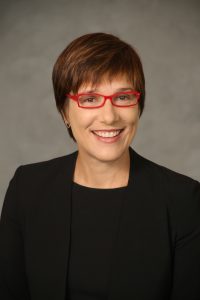There is great value in being able to simplify complex problems, says PwC’s Mary O’Hara, but it’s something you might not realize when you’re starting out and are impressed by technical talk and “consultancy speak.”
“Technical excellence is a prerequisite in my role, but the trick is you have to be able to talk about it in simple terms so that you bring everyone in the room along with you so they feel like they can engage with the issue and aren’t excluded. You have to learn to eliminate jargon to get your message across.”
One Firm, Many Roles
And certainly her technical expertise is vast. During her younger years, O’Hara developed a love of STEM subjects, studying applied mathematics, physics and accountancy. Upon graduation she looked into options in engineering, actuarial and accounting, and was delighted to receive a job offer from PwC to join its training program.
Although she has spent her entire career there, she notes there’s never a feeling of sameness, as both the firm and her role have transformed immeasurably and been reinvented numerous times over the years.
Since she built her career there, being named partner is the professional achievement she is most proud of so far, along with raising a family. And she has overseen remarkable growth in her business division, which started with just a handful of people and has since grown to more than 120 professionals. She’s also proud of the gender balance – of the six partners in her division, half are women.
Her work now entails supporting multinational companies in rewarding and mobilizing their workforces — work that is changing along with the ability to work anywhere and be connected by technology. But while technology assists in many kinds of work, it can block engagement with coworkers and clients if you’re not thoughtful about it. “Email is great, but you still need to breathe the air with them,” she says. “You have to make technology work for you without interfering with relationships.”
As with most industries, her clients are affected by megatrends and technological breakthroughs, such as robotics and AI, as well as the proliferation of data and the importance of leveraging analytics to help companies to make better business decisions.
These advances, which are fundamentally changing the environment in which we all work, will be especially important to the coming generations and will present both great challenges and great opportunities, she notes. “To succeed, businesses must adapt to the changing ways that people work and help companies navigate them to have an engaged workforce.”
As the speed of change has accelerated over the past five years, it has instilled a desire in younger generations to know the purpose they serve and focus on development, through new experiences in new places. And, these new generations want to be part of an organization that has strong value systems, so she finds it an exciting challenge to help employers navigate these new waters.
Helping Women Achieve and Advance
O’Hara believes that any conversation about gender equity starts with making sure that the business case is properly understood — for all stakeholders to realize why a diverse gender pool is important. Then you can examine the culture in your organization and identify what biases exist.
While it can appear to be a benign bias, if women are not given opportunities to advance their careers, you have to break down what the issues are.
Sometimes it’s a need for a sponsor who can accelerate exposure for women. It’s important to embrace the effect that sponsorship can play in a career trajectory, when women have someone early in their career advocating for them and bolstering their career progression.
“You have to take ownership of your career from day one, and seek out opportunities to enhance your experiences, build a strong professional network and collect and act on feedback,” she says.
She believes it’s important for women in her position to talk about issues and get them out in the open. “It’s not a mystery how we got to where we are, but those of us in senior positions need to remember that the climb itself can be so hard that it might dissuade talented women. While our senior roles might be challenging, they are often more doable because of the autonomy we now have, which is often a well-kept secret that might encourage others.”
O’Hara is heartened by the fact that gender diversity is on the PwC agenda, starting from the top. If they are not bringing through equal numbers of men and women, they have a conversation about why and how to fix it.
PwC in Ireland has also established a diversity council around four pillars: international, gender, GLEE and generational, with people throughout the organization at different levels helping to figure out what can make a difference on the ground. “Our focus is on engaging with our people, valuing differences and helping everyone to be the best they can be” she says.
Outside of work, her time is devoted to her family, which includes her husband, young son, and five step children, as well as a close-knit circle of friends.
And she brings her focus on gender diversity outside of her immediate firm, serving on the steering committee of the 30% Club in Ireland as one of the founding members in 2014. The 30% Club is a group of Chairs and CEOs committed to better gender balance at all levels of their organisations through voluntary actions.
“It’s been a phenomenal journey to see what can be done within leading organisations, including professional services firms, to promote gender balances as we share ideas and best practices.” But she notes that while it’s been a way she can give back to the wider business community, she ends up being as much a receiver, given the wide network she’s earned through her time with the group. “It’s very rewarding to be part of something that’s making a difference,” she says.

